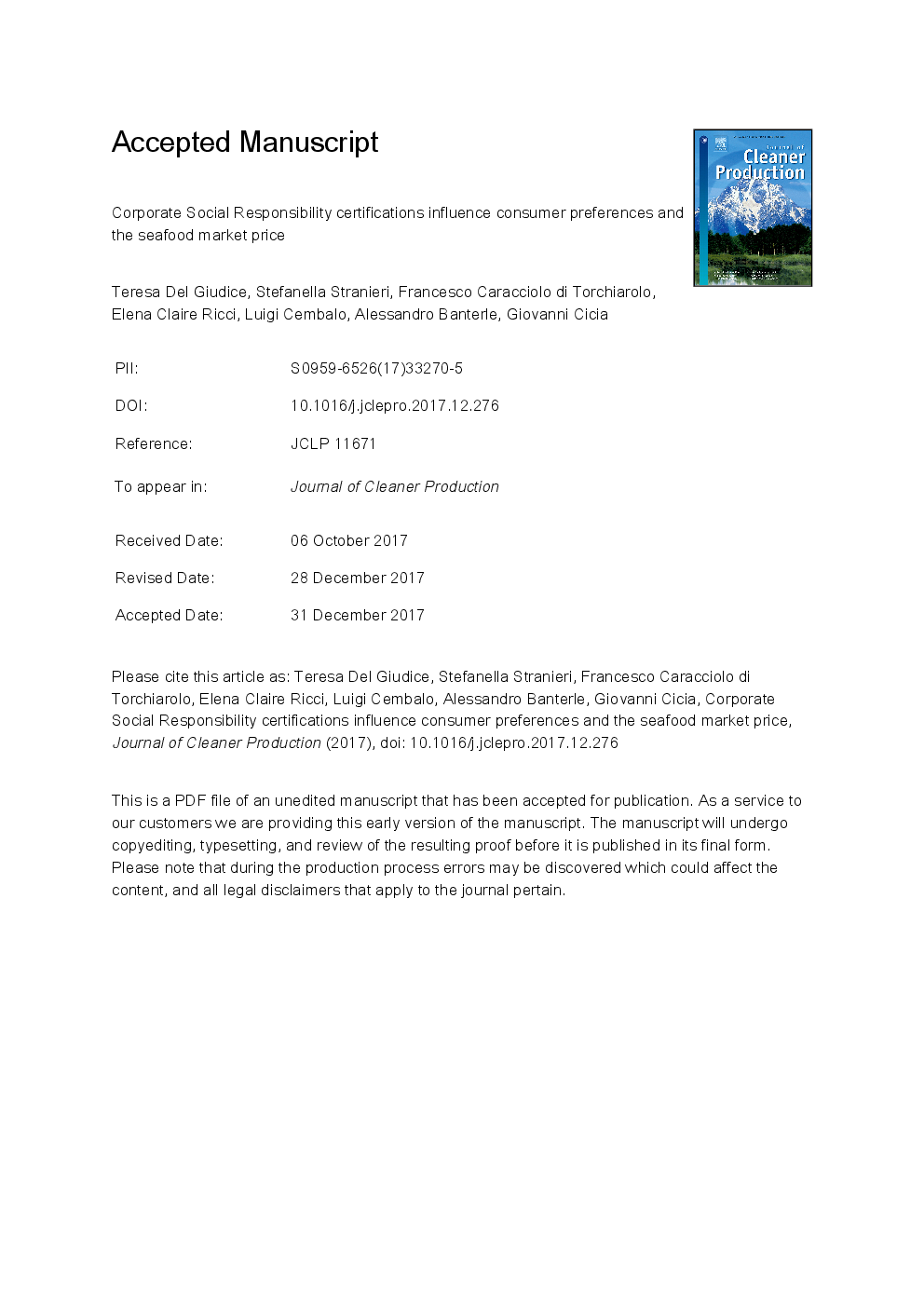ترجمه فارسی عنوان مقاله
گواهینامه مسئولیت اجتماعی شرکت ها بر پایه تنظیمات مصرف کنندگان و قیمت بازار غذاهای دریایی تاثیر می گذارد
عنوان انگلیسی
Corporate Social Responsibility certifications influence consumer preferences and seafood market price
| کد مقاله | سال انتشار | تعداد صفحات مقاله انگلیسی |
|---|---|---|
| 140366 | 2018 | 27 صفحه PDF |
منبع

Publisher : Elsevier - Science Direct (الزویر - ساینس دایرکت)
Journal : Journal of Cleaner Production, Volume 178, 20 March 2018, Pages 526-533

